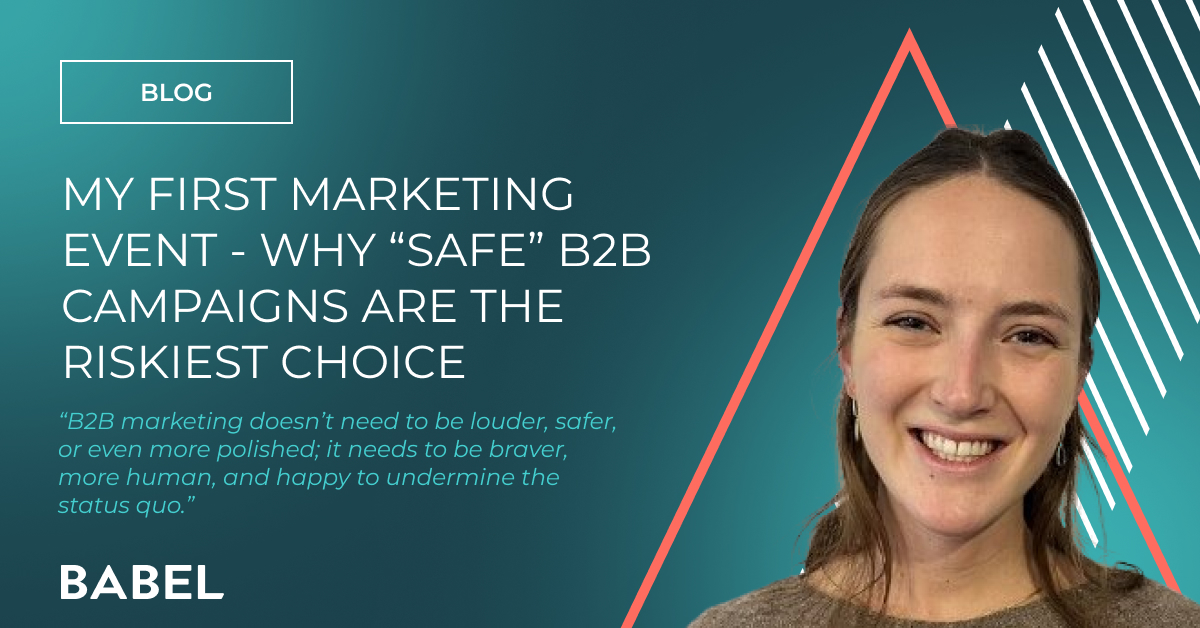Do I need a US agency for US PR?
Choosing which markets to run a PR campaign in can be a challenge, particularly if budgets are tight. How do you make sure you're hitting the right audience, whilst also ensuring a good return on your investment and not blowing the budget?
We come across many businesses that identify the US as a key growth market, given its sizeable economy, established tech sector and proliferation of active investors. But, does that mean you need a US-based agency to run your US PR program? Should you run the US in silo, or with other markets? What activities does it make the most sense to run locally and how do you strike the right balance for the budget?
Let's take a look...
The US is my target market, so I should focus my campaign on the US, right?
Well, yes on a basic level, but we live in a digital age where media is much further reaching. In the world of B2B technology, there is a significant crossover between US and UK-based media, for example. Titles based in the US influence UK buyers, and vice versa, and trades cover both markets in equal measure.

As an example, let's take a look at the above graph which uses Babel's in-house tool RUMA (Really Useful Media Analysis) to look at the publications which rank on Google News for the term 'Open RAN'. You can see Light Reading dominates the results when searched from the US, and TelecomTV dominates them when searched from the UK, but both publications appear prominently in both geographies. Therefore, a thought leadership program that only focused on US media and US issues would risk excluding the 3rd most prominent publication to the US market - TelecomTV.
In B2B tech, it's too presumptive to say that US buyers only read US news sites. Companies can get more bang for their buck by running a simultaneous UK and US campaign, doubling the pool for thought leadership, news, opportunities for issues jumping and more.
Okay, I'm going to run both markets, so I now need two agencies and double the cost?
No, not necessarily.
In-person relationship building is still important for a PR campaign, but it's no longer a given that you need local teams to deal with local media.
Firstly, attitudes to in-person meetings have changed post-pandemic, where we've all become more comfortable working from home instead of travelling to an office. Secondly, and more importantly, the US trade media are much more spread out than in the UK. While there are, of course, still hubs in New York, DC and the Bay, particularly for business and national media, the trade media are spread across the entire US. The same also applies to analysts. That means that even if you employed an agency based on the East Coast, they could be 3,000 miles from some important journalists out West. While UK media isn't as London-centric as it used to be, it's a much smaller distance to cover.
That same logic could apply to having a US agency run the UK market too, but there is one key difference - time! Being 5 hours in front of the US East Coast makes it much more advantageous for UK PRs to pitch US journos and respond to breaking news in the States than it is the other way around.
At Babel, we still maintain good, trusted relationships with our US journo friends throughout the year by speaking with them on the phone and via social media, and then get to enjoy the classic coffee, lunch, or tipple when we head to in-person events.
It's also not as simple as saying an agency running both markets doubles the cost, as there are plenty of efficiencies to be made.
When is having a local agency beneficial?
Certain activities will always benefit from on-the-ground support. Event support is a straightforward one, where staffing in-person briefings and attending talks and speeches is important. More consumer-style activations (or stunts) may also require local teams.
There are also full campaigns that are better run with local knowledge, if it fits the objectives. Campaigns with a heavy government affairs brief would benefit from boots on the ground, closer to where those types of media (typically in DC for obvious reasons) are based.
Can I have the best of both worlds? What is the right balance?
You can! We run a tonne of campaigns for US companies in the US market using our London team and our global network of partner agencies that can offer local market support for the appropriate brief. We've specifically picked our range of partners and freelancers from across the US to match our ethos, which means we can run an effective 'hub and spoke' model where everyone sings from the same hymn sheet. That model, of course, works both ways, where one of our partners may bring us in to handle some UK specifics and we act as a spoke to their hub..
We find that a good balance for many of our clients that want US and European support, is to work with our core team in the UK and then also have a single representative based in the US. This can be a much more cost-effective model than using an agency with full teams in both markets.
I'm still not sure, it's a big decision...
That makes sense. Any PR investment should be well-researched and thought through to maximise budgets and that decision gets more complicated when more geographies are involved.
If you're thinking about where to invest your PR spend and what an open and honest discussion about which markets make the most sense for your needs, get in touch, and we'd be happy to be a sounding board!



.jpg)

.jpg)

.jpg)
